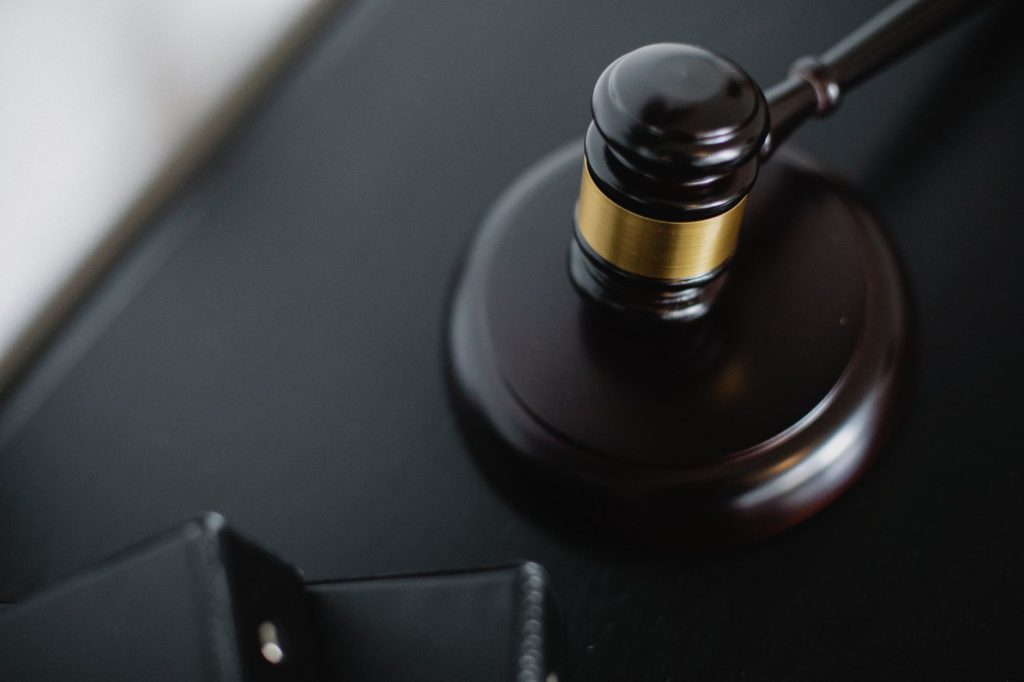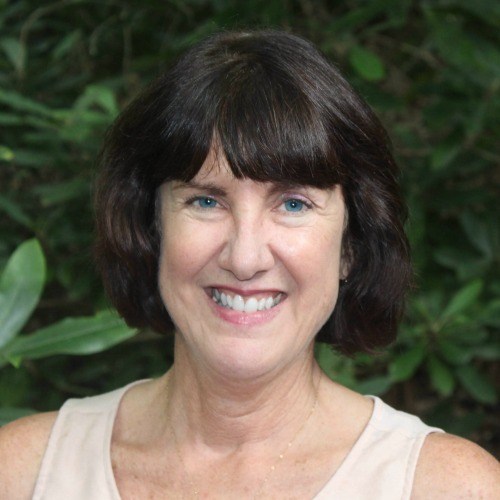Jury Service: Moving from “How can I get out of it?” to “How can I be faithful?”
By Rev. Susan Finck
Because I come from a family of lawyers and almost became one myself, I am usually drawn to all things legal. But I must confess, when I received a little white card in the mail summoning me for jury duty, I was contemplating how I might avoid serving. How could I have enough time for sermon preparation? What about my other responsibilities? What if I got “stuck” on a horrible, violent case? I knew it was part of my responsibility of being a citizen, so I headed downtown, wrestling with my inner objections.

I was chosen first for the larger panel, and my interest and curiosity turned to concern as we were seated. I noticed the racial disparity in the room. The defendant was the only AfricanAmerican. Perhaps two of the 50 or so potential jurors might have been Hispanic or people of color. Everyone else was white: the attorneys, the judge — even the bailiff. (The room did not reflect our county: 55% white, 27% Hispanic, 15% Black.) “How does he feel?” I wondered, as I looked at the defendant.
My mind flashed back to all I had read about Waco’s troubled racial history, and the racial history in this country. From slavery, to reconstruction, then Jim Crow. The segregation that had been entrenched in our own community, that my older church members recall vividly. The phenomenon of mass incarceration throughout our country. “Will he be able to truly get a fair trial?” I wondered, as I looked at his court-appointed attorney. I know they are frequently overloaded with cases and often can’t provide the same high quality defense that money can buy.
Then I was chosen for what became an all-white jury of 12. It was the defendant’s fourth DUI, and he was arrested after swerving markedly while driving (without a license) and testing substantially over the legal blood alcohol limit. The prosecutor presented a video where we saw the car swerving, and we heard the officer’s respectful, appropriate interaction with the defendant. We saw documentation of the defendant’s blood alcohol level. Sadly, I voted for a guilty verdict.
After being seated in the courtroom once again, we heard information we had to consider when issuing the “punishment.” Here is where I agonized. The prosecution was recommending a sentence that could put him in prison the rest of his life, since he was an older man. I asked if there was a way that we could sentence the defendant to mandatory confinement in a rehab facility or other location where he could receive the medical/psychological intervention we all felt he needed. I asked about alternatives: programs to help him, rehabilitation. He had been sentenced to those before and had done well while in prison. The problem was when he would get out of prison, “family members couldn’t keep him from behind a wheel.”
It took us several hours to deliberate the “punishment phase.” Most of the jurors were ready to hand down the recommended sentence. I was overcome with the weightiness of our task. We would be responsible for sending a man away from his family and depriving him of his freedom. We also had a duty to protect society. There wasn’t a good solution. It was sad and hard — made harder by the racial dynamic.
“I need for us to ask ourselves the question,” I said. “If he was white, would we be taking this same course of action?” I got a mix of responses, all from the perspective of “color doesn’t matter.” One of the other jurors confronted me: “If he goes free, and you pick up the Trib and read where he kills a child, how are you going to feel?” Obviously we are weighing odds and probability. I changed my vote.
We were escorted back into the courtroom. His family filled two rows of the gallery, the only African-Americans present. I was praying as I looked around. Then, one of the older women caught my eye. It was like she read my thoughts, overhearing my prayer. For an extended moment, we were connected.
I’m not usually a cry-er. As much as I tried to fight it, and as much as I was embarrassed, I cried in the jury box that day. I cried for the family. I cried for the defendant. I cried for our history in Waco; and for “the system.” I cried from the weight of the decisions I had to participate in.
I came away from that experience with a deepening of a conviction that we need more attorneys in our county who are people of color. And jurors, especially jurors. Jury service pulled me out of my own self-focus and broadened my perspective, making me more passionate about the justice I say I believe in. I found many of my beliefs and biases challenged; I had to choose between a list of heartbreaking options. How “severe” was what he had done? How do we equate that with a number of years of someone’s life?
How did depriving him of his freedom balance with protecting society or even his own life?
If you get the little white card in the mail, I want to encourage you to think beyond how you might be inconvenienced. Jury service will cost your time and your mental and intellectual energy. You will have to find others to cover work and home responsibilities. Things will go undone. But it takes all of us to make our society work and work fairly.
The little white card may be your invitation to be faithful to your values or your God, if you are a person of faith. Instead of, “Oh, no, how can I get out of this?” What if you thought: “If I am called, I will willingly serve to do my part to witness for truth and justice. My voice, in dialogue with those of my fellow community members, is needed.”
Besides serving if you are called, I want to invite you to think of any Hispanic or Black young adults you know who might make good lawyers. Ask them if they’ve considered this path. Tell them you can see them in this role. Encourage. Plant that seed.
Finally, join Waco NAACP Black History Month Criminal Justice Series (on Zoom):
“Who Let George Zimmerman Go?: How Being a Juror Serves Justice,” 6:30-8 p.m., Feb. 22, free. One juror could have prevented George Zimmerman, the man who killed Trayvon Martin, from being acquitted. Yet, African Americans are routinely prevented from serving on jurors. Worse, many African Americans actively work to avoid jury duty. William Snowden, founder of The Juror Project, aims to eliminate both these problems.
“Breonna Taylor Could Have Gotten Justice: The Power of Grand Juries,” Feb. 28, 6:30-8 p.m., free. Had the members of the grand jury who heard the Breonna Taylor case known the power they had to call witnesses or issue subpoenas, the outcome might have been different. Award winning, board-certified Criminal Defense attorney Tyrone Moncriffe, explains the grand jury procedure, the power that jurors have, and why it is crucial that African Americans serve on them.

Rev. Susan Finck serves as the pastor of El Calvario Presbyterian Church in North Waco and a board member for Greater Waco Legal Services. She is passionate about literacy and education in our city, and encouraging opportunity for everyone to fulfill their callings. She and her husband, Dr. Bill Lockhart, a long-time instructor at McLennan Community College, have lived in Waco since 2001. They have four adult children and two grandchildren.
The Act Locally Waco blog publishes posts with a connection to these aspirations for Waco. If you are interested in writing for the Act Locally Waco Blog, please email Ferrell Foster at [email protected].

Excellent post, Susan! Heartwrenching. Thank you for sharing your experiences and your thoughts.